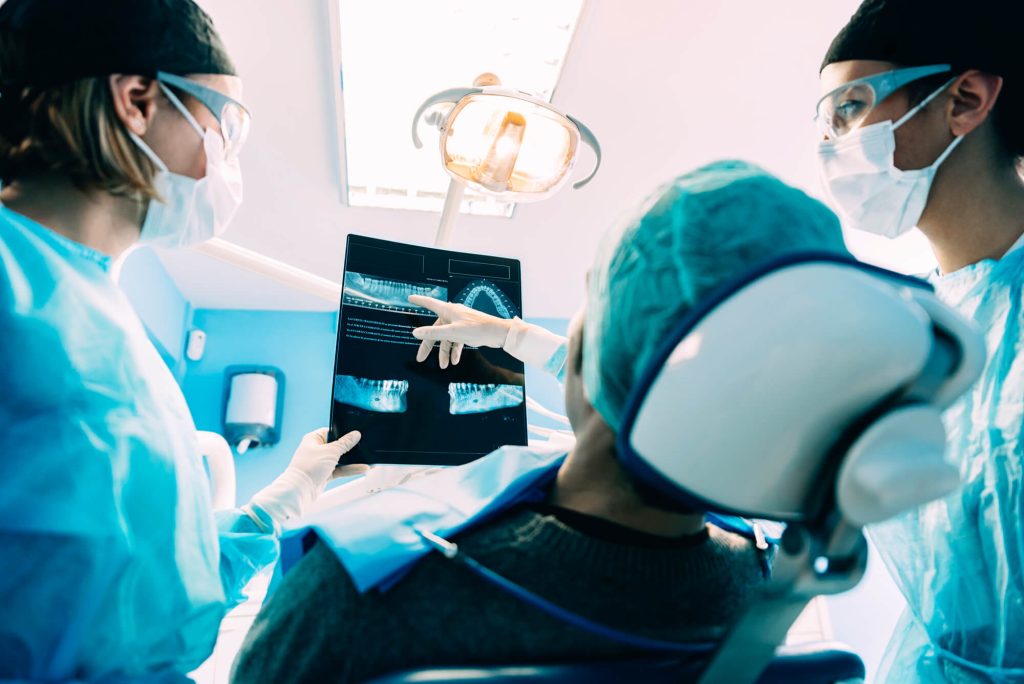Most people are often submerged in a vast sea of knowledge in a world where information is just a few clicks away. Despite this abundance, many wonder about oral surgery in Greenville, SC – a field that plays a crucial role in maintaining oral health and well-being.
If you’re unfamiliar with this specialty, we’re here to demystify oral surgery and shed light on its significance by answering the most asked questions about this treatment.

Most Asked Questions About Oral Surgery
What is Oral Surgery?
Oral surgery is a type of dental treatment that involves surgical procedures inside your mouth. It addresses complex oral health issues that cannot be treated with regular dental procedures.
Why Might I Need Oral Surgery?
You may need oral surgery for various reasons. It could be removing impacted wisdom teeth, repairing a jaw fracture, treating gum infection, placing dental implants, removing tumors or cysts, or even correcting jaw-related problems like misalignment.
What Are the Different Types of Oral Surgery Procedures?
There are many different types of oral surgery procedures. Some common ones include tooth extraction, wisdom tooth removal, dental implant placement, jaw surgery, gum surgery, and biopsy (to diagnose oral conditions).
How Long Does Oral Surgery Usually Take?
The duration of oral surgery depends on the specific procedure and its complexity. Some procedures can be completed quickly, while others may take several hours. Your oral surgeon will provide an estimated time frame before the surgery.
Is Oral Surgery Painful?
During oral surgery, you’ll typically receive anesthesia, which numbs the area and helps you feel little to no pain during the procedure. Afterward, you might experience some discomfort, but your surgeon will prescribe pain medications to manage it.
What Is the Recovery Process Like After Oral Surgery?
Recovery after oral surgery varies depending on the procedure and individual factors. Generally, you can expect some swelling, bruising, and mild discomfort. Your surgeon will provide specific instructions for post-operative care, including pain management, eating restrictions, oral hygiene practices, and follow-up appointments.
Are There Any Risks or Complications Associated With Oral Surgery?
Like any surgical procedure, oral surgery carries some risks. These can include bleeding, infection, nerve damage, adverse reactions to anesthesia, or complications specific to the procedure. Your oral surgeon will discuss these risks with you and take appropriate measures to minimize them.
How Should I Prepare for Oral Surgery?
Your oral surgeon will provide detailed pre-operative instructions. These may include fasting before surgery (especially if general anesthesia is used), arranging transportation to and from the surgical facility, disclosing your medical history and medications, and following specific medication or oral hygiene routines guidelines.
Will I Be Awake During the Oral Surgery Procedure?
The level of consciousness during oral surgery depends on the procedure and the type of anesthesia used. You may be fully awake with local anesthesia or receive sedation or general anesthesia to make you sleep during the surgery. Your oral surgeon will determine the most appropriate option for your case.
Are There Any Dietary Restrictions After Oral Surgery?
Yes, there may be dietary restrictions following oral surgery. Your surgeon will likely recommend a soft-food or liquid diet for a certain period. It’s important to avoid foods that irritate the surgical site, such as hard, crunchy, or spicy foods, until your surgeon gives you the green light.
How Long Will It Take for the Stitches to Dissolve or Be Removed After Oral Surgery?
The time it takes for stitches to dissolve or be removed depends on the type of stitches used. Some stitches dissolve on their own within a week or two, while others may require removal by your oral surgeon during a follow-up appointment.
Can I Drive Myself Home After Oral Surgery?
If you’ve received sedation or general anesthesia, driving yourself home afterward is unsafe. These medications can impair your coordination, judgment, and reflexes. It’s important to arrange for someone else to drive you home and stay with you during the initial recovery period.
When Can I Resume Normal Activities and Return to Work After Oral Surgery?
The recovery time varies depending on the procedure and individual healing. It’s best to take it easy a few days after oral surgery and gradually resume normal activities as you feel comfortable. Your surgeon will provide specific guidelines, including when it’s safe to return to work or engage in physical activities.
It’s important to listen to your body and avoid strenuous activities that may interfere with the healing process. Your oral surgeon will provide personalized recommendations based on the specific procedure you underwent.

Do You Need Oral Surgery in Greenville, SC?
Although this information provides a general understanding of oral surgery, it’s always best to consult with the qualified dental professionals at Pelham Links Family and Cosmetic Dentistry. Contact us today to make an appointment.


